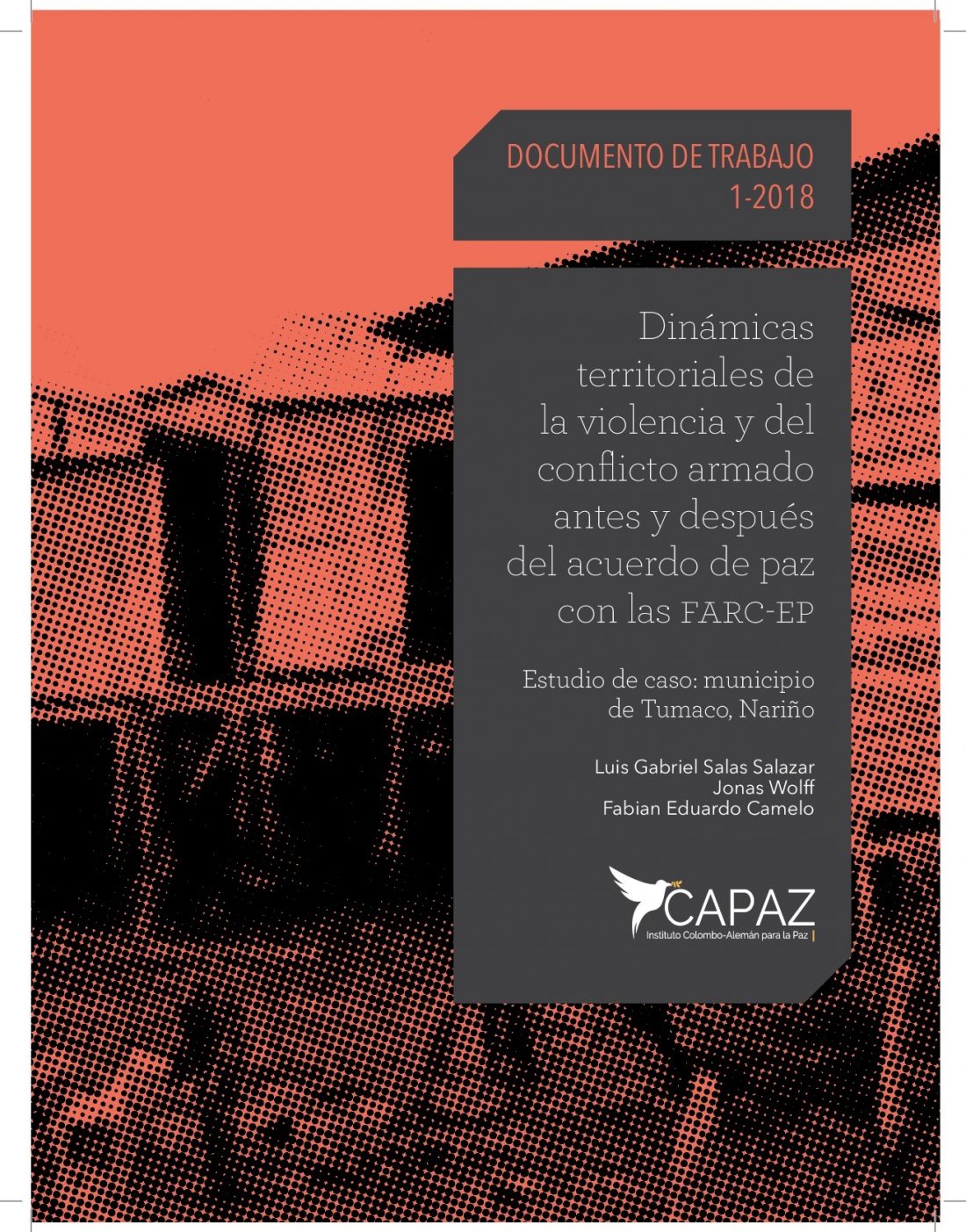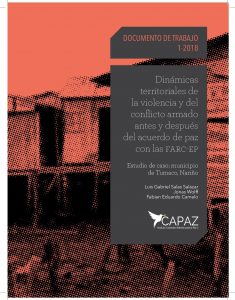
CAPAZ PUBLISHES ITS FIRST WORKING PAPER ON THE DYNAMICS OF THE ARMED CONFLICT IN TUMACO, NARIÑO

The German-Colombian Peace Institute, CAPAZ publishes its first working paper “Territorial dynamics of the violence and armed conflict before and after the peace accord with the FARC-EP. Case study: Tumaco, Nariño”.
This paper has been written by researchers Luis Gabriel Salas Salazar and Fabián Eduardo Camelo (Universidad Nacional de Colombia), and Jonas Wolff (Peace Research Institute Frankfurt-PRIF).
Abstract:
From a historical and geographical perspective (1990-2017), this paper analyses the territorial dynamics of the armed conflict and violence recorded in Tumaco, in the department of Nariño, in southwest Colombia.
The text examines the interrelated spatial behaviour of variables such as the presence of armed actors, armed confrontation, the drugs economy and the violence recorded against the civil population.
The Tumaco region, with its high levels of armed confrontation and violence following the signing of the peace accord between the government and the FARC-EP, has always figured as a space subject to dispute, a supplier of illegal economies, and of strategic corridors for residual groups and drug traffickers.
The territorial disputes and the violence recorded in urban Tumaco are a direct reflection of the armed tensions between illegal groups wanting to control the criminal economies and the State Forces wanting to control them in rural Tumaco.
The paper offers crucial information on the key challenges faced by the current peace process in Colombia, but it also contributes to general knowledge on the complex dynamics of crime and violence during the transition to peace.
Keywords:
Peacebuilding; non-State armed groups, drugs economy; post-conflict violence; peace process in Colombia.
Series of CAPAZ working papers:
The purpose of the CAPAZ Working Papers series is to promote an exchange of knowledge, academic debate, and the building of bridges of cooperation, enabling researchers to disseminate and expose the initial results of their on-going investigations, as well as their contributions and approaches to topics dealing with peacebuilding in Colombia.
Access to the CAPAZ Working Papers series is free and regulated by Creative Commons Attribution parameters. Copyright is owned by the author(s) and any total or partial reproduction of the paper (including its visual tools and the data provided) must acknowledge the authors and the first publication. The paper can be reproduced solely for research purposes or personal use. For other purposes authorisation from the author(s) must be requested.
CAPAZ is not responsible for any errors or inaccuracies expressed by the author(s) in the Working Paper or the consequences of their use. The views and opinions expressed in this article are those of the authors and do not necessarily reflect the views and opinions of the CAPAZ Institute.
Download the first CAPAZ Working Paper 1-2018 (in Spanish).
Further information: juliana.gonzalez@www.instituto-capaz.org / juliette.vargas@www.instituto-capaz.org



